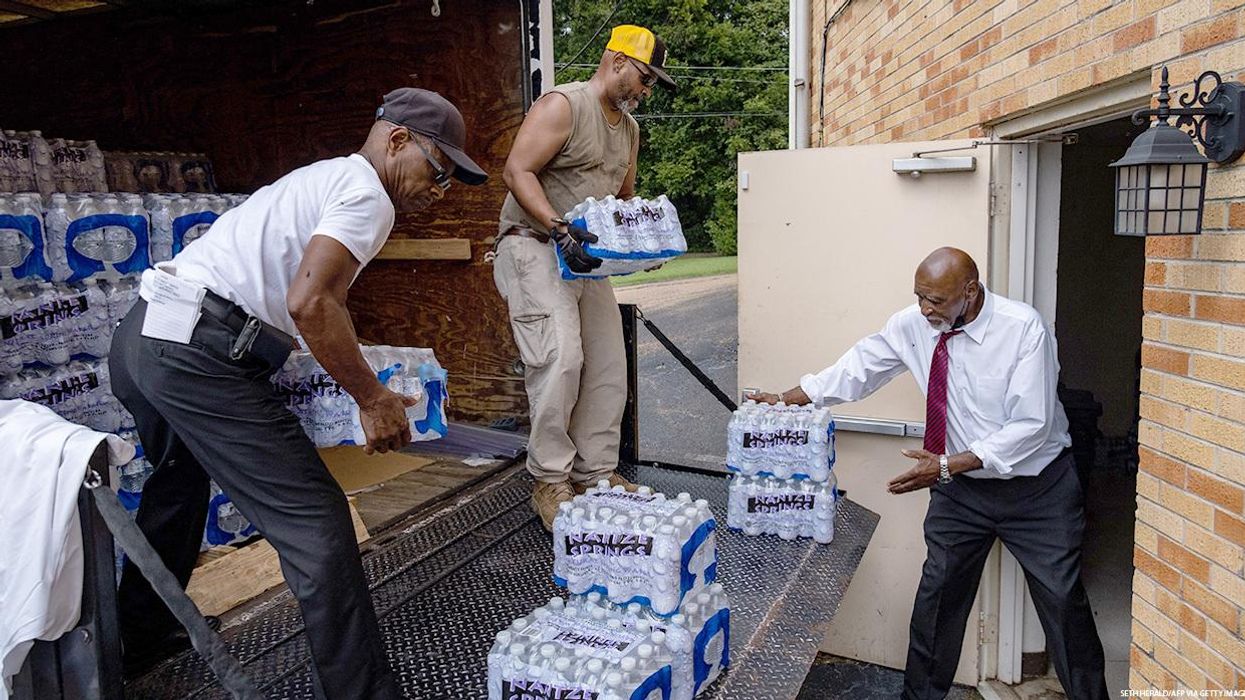The city of Jackson, Mississippi has been without clean water for nearly seven weeks. With several majority Black and brown communities facing infrastructural crises, experts suggest a devastating trend of environmental racism.
The Health Department placed Jackson under a boil water notice in July when it discovered cloudy, brown water exacerbated by old and damaged pipes. In August, the city's water crisis was made worse when heavy rainfall and subsequent flooding damaged the city's largest water treatment plant.
Jackson's 150,000 residents -- 80 percent of whom are Black -- remain without clean drinking water. Even with water pressure now restored, and the boil water notice lifted as of yesterday, residents still report unsafe water when using their faucets.
The crisis in Mississippi comes after similar events in Michigan, where the majority Black cities of Flint and Benton Harbor both experienced crippling water shortages caused by outdated lead pipes. Flint's crisis officially lasted three years, though residents still feel the effects as the city has yet to meet their September deadline for replacing its remaining lead pipes.
Robert Bullard, distinguished professor of urban planning and environmental policy at Texas Southern University, believes that ongoing environmental crises are the result of "disinvestment" in communities of color. When government funding is concerned, the infrastructure in districts with majority Black and brown residents is often overlooked.
"It is indicative of a larger problem. And the problem is basically looking at which communities get resources for infrastructure and which ones get left behind," Bullard told PBS News Hour. "And when cities begin to transition, the demographic shift from predominantly white to predominantly Black or brown, you start to see problems occurring in terms of getting state funding to support infrastructure. And you can see that direct line with not only infrastructure when it comes to water."
If President Biden’s bipartisan Infrastructure Act passes, the state of Mississippi will receive $429 million dollars to repair their water and sewer systems. Jackson will also receive $25 million from the American Rescue Plan, despite lack of support from Republican politicians. According to Bullard, federal funding is of the utmost importance in cases such as Jackson’s, as states often do not equitably distribute infrastructure funds.
"We're talking about environmental racism. We're talking about infrastructure apartheid. We're talking about which communities get left out, left behind,” he concluded. "Race is still — if you look at zip codes -- still the most potent factor that determines where money flows. It's pretty obvious that infrastructure dollars over these decades have not flowed into Jackson. And that's a major issue today. But it just didn't happen in the last year. It happened over decades."



















































